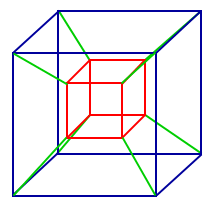How should one select the winner of an election?
If there are only two candidates, the answer is clear— choose the one who would win the most votes in a head-to-head election. But with three or more candidates, when each voter has ranked his or her candidate preferences, the answer is less obvious.
Mathematically we can formalize the question in this way. A social choice function is a function that takes lists of people’s ranked preferences and outputs a single alternative (the “winner” of the election). So the question becomes: is there a “good” social choice function that represents “the will of the people”?
Consider the following situation with 3 voters and 3 candidates:
Suppose Voter 1 prefers A to B to C.
Suppose Voter 2 prefers B to C to A.
Suppose Voter 3 prefers C to A to B.
Notice that no matter who is selected as the “social choice” for this set of lists, then 2/3 of the voters will be “unhappy” in the sense that those voters prefer another candidate to the one chosen by the social choice function! (For instance, if A is chosen as the winner, then Voters 2 and 3 will prefer C to A.)
This paradox, due to Maurice de Condorcet in 1785, shows that it is not always possible for a social choice function to pick a candidate that will beat all other candidates in pairwise comparisons. If there is a candidate that does, then that candidate is called a Condorcet winner.
Presentation Suggestions:
This may be a good starting point for students to ponder the role of third parties in American politics. You may also ask students to generalize this paradox to N people.
The Math Behind the Fact:
The study of social choice functions and related questions is called social choice theory, a subfield of game theory. There are other famous impossibility results: most notably Arrow’s Impossibility Theorem.
How to Cite this Page:
Su, Francis E., et al. “Social Choice and the Condorcet Paradox.” Math Fun Facts. <http://www.math.hmc.edu/funfacts>.
References:
Alan Taylor and Allison Pacelli, Mathematics and Politics, Springer, 2008.
Fun Fact suggested by:
Francis Su

